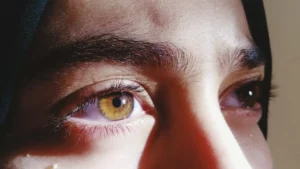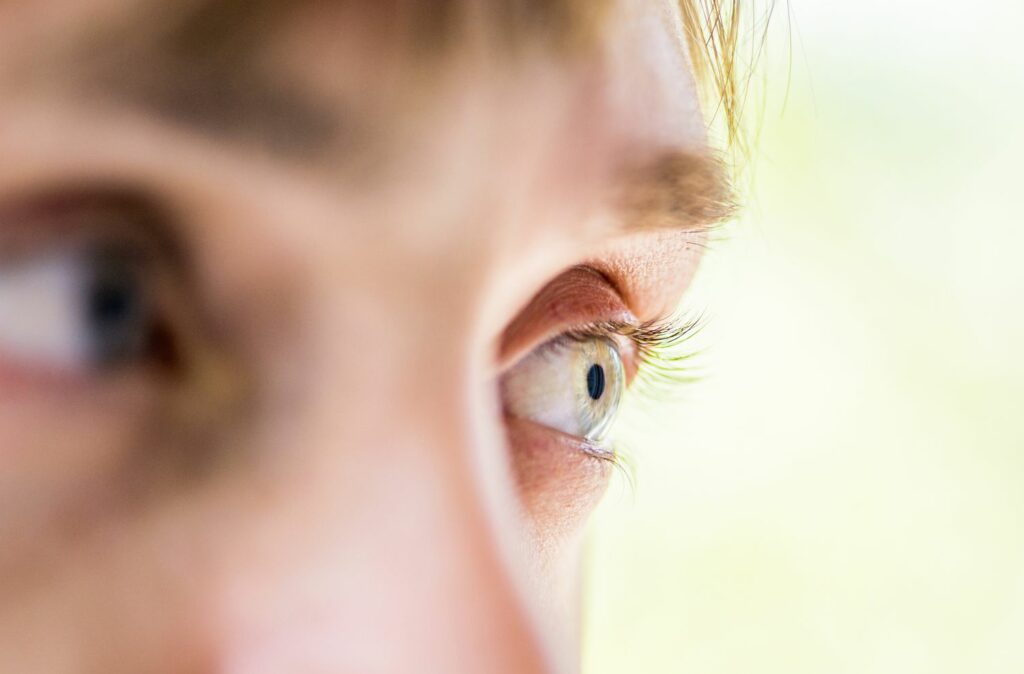When you are dealing with diabetes, there is one of the often-overlooked complications is blurry vision. If you’ve been experiencing this symptom, you’re not alone. Blurry vision can be a sign of fluctuating blood sugar levels, and managing it effectively is crucial for maintaining overall eye health. In this blog, we’ll explore the causes and also share blurry vision diabetes remedies to help you regain clarity and focus on your journey toward better eye health.
Contents
Why Do Diabetics Eyes Get Blurry?
 Diabetes can cause blurry vision due to several interconnected factors that impact the eyes. The primary reasons behind this phenomenon include:
Diabetes can cause blurry vision due to several interconnected factors that impact the eyes. The primary reasons behind this phenomenon include:
- Fluctuating Blood Sugar Levels
High and fluctuating blood sugar levels can lead to changes in the shape of the lens in the eye. This impacts its ability to focus properly, resulting in blurry vision. Rapid changes in blood sugar levels can cause the lens to swell or shrink, affecting its refractive properties.
- Diabetic Retinopathy
Over time, uncontrolled diabetes can damage the blood vessels in the retina, a condition known as diabetic retinopathy. The damaged blood vessels may leak fluid into the retina, leading to swelling and distortion of vision. This can manifest as blurred or distorted images.
- Dry Eyes
Diabetes can contribute to dry eyes by affecting the normal functioning of the tear glands. The dry eyes can cause discomfort and contribute to blurry vision, as a lack of proper lubrication may impact the smoothness of the cornea’s surface.
- Changes in Refraction
Diabetes can induce changes in the refractive index of the eye, impacting its ability to focus light properly onto the retina. This can result in difficulties in seeing objects clearly, especially at different distances.
- Increased Risk of Cataracts
People with diabetes have an elevated risk of developing cataracts at an earlier age than those without diabetes. And, cataracts cloud the eye’s natural lens, causing vision to become progressively blurry.
- Nerve Damage
Diabetes can cause damage to the nerves, including those that control the eye muscles. Impaired eye muscle function can lead to difficulty in maintaining proper focus, contributing to blurry vision.
Individuals with diabetes must manage their blood sugar levels effectively through lifestyle changes, medication, and regular medical check-ups. If you experience persistent blurry vision, it’s advisable to consult with a healthcare professional or an eye specialist promptly.
What Are Some Blurry Vision Diabetes Remedies To Fix?
 Blurry vision diabetes remedies involve a combination of lifestyle changes, medical interventions, and proactive eye care. Here are some remedies to consider:
Blurry vision diabetes remedies involve a combination of lifestyle changes, medical interventions, and proactive eye care. Here are some remedies to consider:
Blood Sugar Management
Effective management of blood sugar levels is paramount in addressing blurry vision associated with diabetes. Regular monitoring is essential to understand how various factors, such as diet and physical activity, affect your glucose levels. Adhering to prescribed medications is crucial. This will help to ensure that insulin or oral medications are taken as directed by your healthcare provider. By keeping blood sugar levels within the recommended target range, you can mitigate the impact on the lenses of your eyes and promote clearer vision.
Healthy Diet
A well-balanced and nutritious diet plays a pivotal role in diabetes management and, consequently, in addressing blurry vision. Prioritize whole foods, such as fruits, vegetables, whole grains, and lean proteins, while limiting the intake of processed foods and refined sugars. Including foods rich in omega-3 fatty acids, like fatty fish, flaxseeds, and walnuts, can benefit eye health. Proper nutrition not only helps stabilize blood sugar levels but also provides essential nutrients that support overall eye function.
Hydration
Adequate hydration is crucial for maintaining moisture in the eyes and preventing dryness, a common contributor to blurry vision. Ensure you drink enough water throughout the day to support optimal eye health. Staying hydrated also aids in overall bodily functions and helps regulate blood sugar levels, contributing to better diabetes management.
Regular Exercise
Engaging in regular physical activity offers numerous benefits for individuals with diabetes, including improved blood circulation and overall health. Exercise helps the body utilize insulin more effectively, assisting in the regulation of blood sugar levels. Additionally, incorporating specific eye exercises, such as focusing on near and far objects, can alleviate eye strain and enhance the ability to maintain clear vision.
Eye Care Practices
Adopting proper eye care practices is essential to reduce strain and promote optimal vision. Take regular breaks if you spend extended periods staring at screens, following the 20-20-20 rule. Using artificial tears or prescribed eye drops can help combat dry eyes and maintain adequate moisture. Consistent eye care practices contribute to the overall well-being of your eyes, reducing the likelihood of blurry vision associated with diabetes.
Optimal Sleep
Adequate and quality sleep is a fundamental component of overall health and well-being, including eye health. During sleep, the body undergoes essential repair and rejuvenation processes. Ensuring you get enough rest can positively impact your energy levels, mood, and the health of your eyes. Lack of sleep may contribute to eye strain and exacerbate the symptoms of blurry vision. Establishing a consistent sleep routine and creating a comfortable sleep environment can support not only your diabetes management but also your eye health.
Regular Eye Examinations
Scheduling regular eye examinations with an optometrist or ophthalmologist is crucial for individuals with diabetes. These professionals can assess the health of your eyes, detect any early signs of diabetic retinopathy, cataracts, or other eye conditions, and provide timely interventions. Early detection allows for more effective management and reduces the risk of complications. Even if you haven’t experienced noticeable changes in your vision, routine eye check-ups play a preventive role in preserving your eyesight and overall eye health.
Quit Smoking
Smoking has detrimental effects on both cardiovascular and ocular health, making it particularly harmful for individuals with diabetes. Smoking increases the risk of developing diabetic retinopathy and other eye conditions. If you currently smoke, quitting is one of the most impactful steps you can take to improve your overall health and reduce the risk of diabetic complications, including blurry vision.
Manage Stress
Chronic stress can negatively impact diabetes management and contribute to blurry vision. Stress triggers the release of hormones that can lead to fluctuations in blood sugar levels. Additionally, stress may contribute to eye strain and exacerbate existing eye conditions. Incorporating stress-reducing practices into your daily routine, such as meditation, deep breathing exercises, or yoga, can help manage stress levels.
Consult with Eye Specialists
Beyond routine eye examinations, consider consulting with eye specialists, especially if you experience persistent or worsening vision issues. Ophthalmologists, who are medical doctors specializing in eye care, can provide a more in-depth assessment of your eye health. They may recommend additional tests or treatments based on their expertise, ensuring comprehensive care for your eyes and addressing any specific concerns related to diabetes-induced blurry vision.
It’s crucial to tailor these remedies to your individual health needs and seek guidance from healthcare professionals for personalized advice. Remember, consistent management of diabetes and proactive eye care can significantly contribute to maintaining clear vision and preventing further complications.
Can I Get My Eyesight Back To Normal?
 The potential for restoring eyesight to normal largely depends on the underlying cause of vision impairment. In cases where blurry vision is associated with diabetes, diligent management of the condition can often prevent further deterioration and, in some instances, improve visual acuity. Strict adherence to a diabetes management plan can positively influence eye health. However, it’s essential to note that while these measures can prevent additional damage, they may not completely reverse existing eye conditions.
The potential for restoring eyesight to normal largely depends on the underlying cause of vision impairment. In cases where blurry vision is associated with diabetes, diligent management of the condition can often prevent further deterioration and, in some instances, improve visual acuity. Strict adherence to a diabetes management plan can positively influence eye health. However, it’s essential to note that while these measures can prevent additional damage, they may not completely reverse existing eye conditions.
For individuals with diabetic retinopathy or other diabetes-related eye complications, early detection and proactive treatment can significantly slow down progression and preserve remaining vision. In cases unrelated to diabetes, such as refractive errors like nearsightedness, farsightedness, or astigmatism, corrective measures like prescription eyeglasses or contact lenses can effectively restore normal vision.
Additionally, surgical interventions such as LASIK or cataract surgery may be viable options for certain conditions. However, the feasibility of these interventions depends on factors like overall eye health, the specific nature of the vision impairment, and individual suitability. Consulting with an eye care professional is crucial for a thorough assessment and personalized recommendations.
Conclusion
In conclusion, blurry vision diabetes remedies involve a combination of practical steps and a commitment to overall health. By actively controlling blood sugar levels through regular monitoring and medication adherence, adopting a balanced diet rich in nutrients, staying hydrated, and incorporating regular exercise, individuals can significantly improve their chances of maintaining clear vision. Prioritizing optimal sleep, regular eye check-ups, and addressing stress contribute to comprehensive eye care.
Consulting healthcare professionals and eye specialists for personalized advice ensures a holistic approach to eye health, fostering a brighter future for those navigating diabetes-related vision challenges. Remember, small lifestyle adjustments can make a big difference in preserving and enhancing your eyesight. Do you want to get rid of diabetes? Join our online diabetes treatment program and reverse Diabetes naturally through lifestyle changes such as a Personalized Diet plan, Exercise, Yoga, dieticians, and health coaches.

